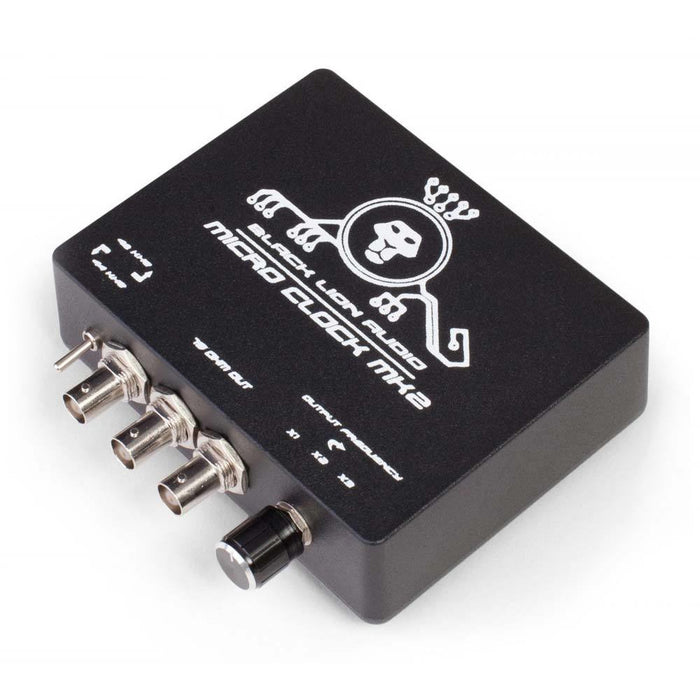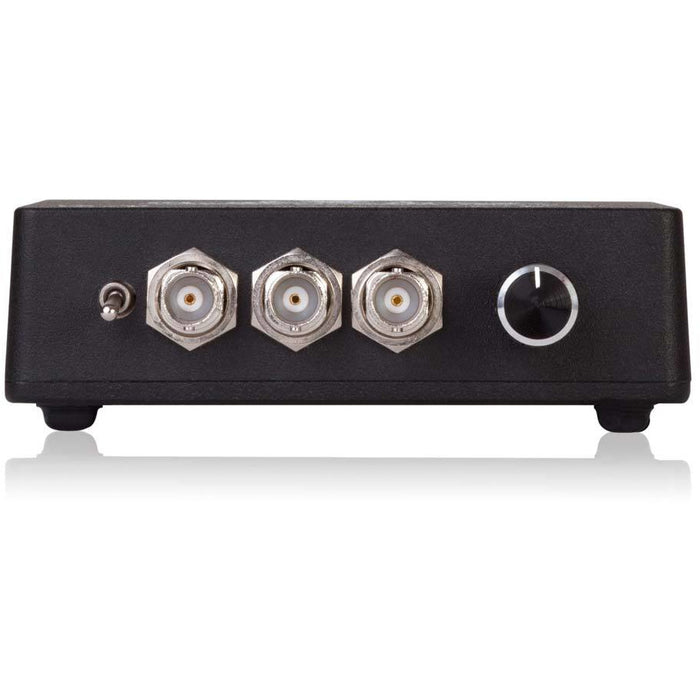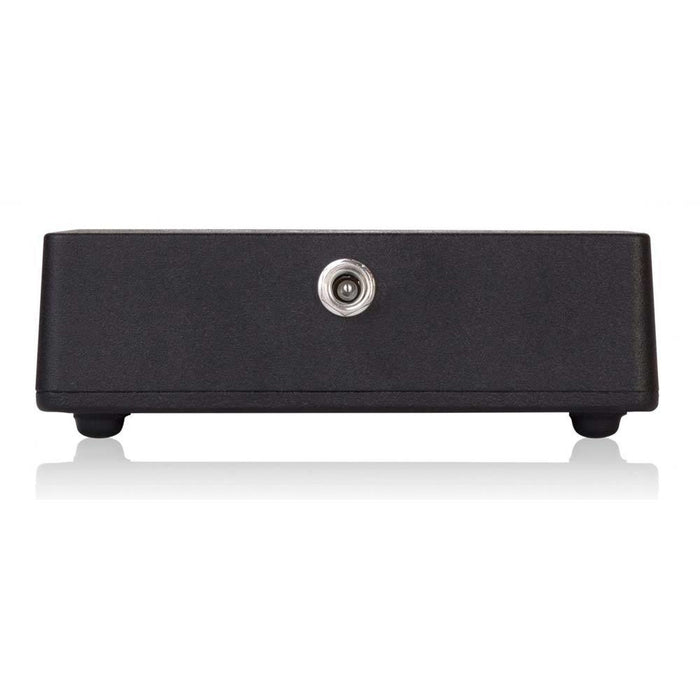
Black Lion Audio Micro Clock MK2
Black Lion Audio Micro Clock MK2
The Black Lion Audio Micro Clock mk2 is a completely revolutionary design in external clocking. The Micro Clock mk2 features ultra-low jitter, third order crystal oscillators with a high current parallel drive circuit designed to increase the amount of desirable harmonics within the clock’s spectral band. In addition to this, Black Lion Audio's proprietary noise reduction circuitry dramatically eliminates the unwanted switching harmonics normally found in digital signals. These are musically unrelated signals that create distortion and phase cancellations within the converted audio signal.
The Micro Clock mk2 is housed in a rugged yet basic 3 inch by 4 inch chassis that provides optimum RF shielding. It has no lights, no frequency display, and none of the usual visual candy that your friends might envy, but that’s because those items create unwanted noise that affect the signal. For a modest black box, it does its job incredibly well and at a price that’s unheard of for this level of performance.
The power supply is 9 volts DC using a wall wart that’s capable of accepting both 120 and 240 volts AC. It features six selectable output frequencies from 44.1 kHz on up to 192 kHz. The output level is approximately 5 volts peak to peak. Jitter at the crystal oscillator is approximately 1 picosecond RMS, and it’s just under 10 picoseconds RMS at the output. Both of these figures are obtained using a Delta Sigma averaging method. The Micro Clock mk2 is compatible with all modern digital devices that have 75 ohm BNC word clock inputs.
Black Lion Audio Micro Clock MK2 Features
- Output: 3 BNC with fixed 75 ohm terminations @ 5 volts peak to peak
- Power: 9 volts DC
- Sampling rates: Six selectable rates, 44.1 kHz-192 kHz
- Jitter: Maximum 1 picosecond of intrinsic jitter, less than 10 picoseconds of accumulated jitter measured using a delta sigma averaging method.


